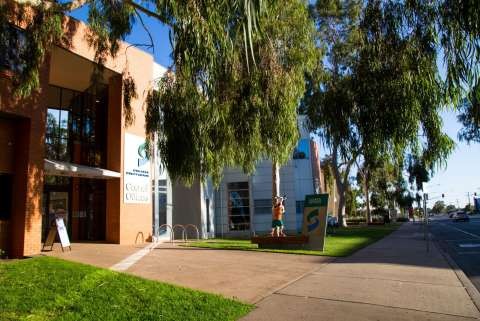One of the primary arguments made in the public and media discourse against an Indigenous Voice in the Australian Constitution has been that introducing race or ethnicity into our Constitution undermines our equality.
Some go so far as to claim it would make our Constitution racist.
In fact, the ‘Case for Voting No’ in the Official Yes/No Referendum Pamphlet claims that “it will divide us by race” and that this “goes against a key principle of our democratic system, that all Australians are equal before the law”.
The argument about legal equality, or liberal neutrality, is one familiar to political scientists and is one of the central tenets of liberalism.
Liberal neutrality, in this sense, refers to conceptions of the good life – or how we want to live. That is, the state should not preference or privilege one way of life over another.
A kind of ‘benign neglect’.
It works well, or so it seems when you are part of the dominant group. In other words, when your culture, language and religion are more-or-less reflected in the laws, institutions and practices of the state.
But this belies the myth of neutrality. No state system is truly neutral, nor can it be.
Legal equality does not lead to substantive equality, in fact, it can legitimise systemic racism. The impact of this so-called neutrality is especially strong if you are part of a discriminated minority.
It’s well-established that Indigenous Peoples in Australia have been subject to historical discrimination – through the dispossession of land, removal of children, inability to own title and so many more examples.
Australia’s system of Native Title rests on a premise that up until the 1975 Racial Discrimination Act, the government could be racist and steal whatever land it wanted from the Indigenous Peoples, simply because they are Indigenous.
So, anything the government did before then was fine because racism was legal. While the law may have changed, the discrimination continues.
The ongoing impacts are manifest in the substantial – and in some areas growing – gap between Indigenous and non-Indigenous peoples.
So, can a liberal democracy accommodate group or collective rights?
Liberalism, on which our political system is based, is an individualistic political theory. It prioritises individual rights and freedoms, justice, legal and political equality as well as the protection of private property.
It underpins our capitalist market economy and is argued to have been behind the wealth and prosperity of the West.
Liberalism is individualist, so the argument goes, because only when we are free from oppression and free to make our own choices about the good life, can we reach our full potential.
But being part of a group, choosing how you identify, and having that kind of autonomy, is itself a fundamental individual right.
There is nothing inconsistent with a liberal individualist constitution recognising collective rights or group rights – or in this case the distinctiveness, the historical entitlement and the right to have a say about matters that affect Indigenous Peoples.
This should make our democracy richer, more equal, fairer and more inclusive.
But what about other identity groups, one might reply. For example, why don’t LGBTQI+ people also get a Voice in the Constitution? Why don’t immigrant groups (like the English…) get one? Where does it stop?
Well, it is quite simple really.
Only Indigenous People have such a historical entitlement and the associated rights. Rights that our highest court has recognised. Rights that almost every country in the world, including Australia, has signed up to. One of those is the right to determine their own identity.
A person’s identity is an integral part of their self, their sense of place and their structure of interaction and behaviour.
An individual and their group’s freedom to practice their culture, speak their language and worship as they choose is fundamental to their wellbeing and prosperity – supporting individual autonomy and self-respect
It is true that people will often have multiple and overlapping identities. However, those that are based on ethnicity or religion are often dominant, and mutually exclusive.
So democracy does not help in this situation.
Unless a political system is specifically designed to accommodate ethnic diversity – such as through a Voice – some groups will face permanent marginalisation.
The alternative, one which has been disregarded by most modern states around the world, is assimilation. History is littered with examples of people being forced to assimilate – whether by coercion or in order to access the rights and privileges reserved for members.
There are very few countries around the world that still maintain a policy of assimilation. And those that do can hardly be held up as a paragon of liberalism.
Yet still, hiding behind much of the opposition to the Voice is a (conscious or unconscious) position that Indigenous Peoples should assimilate.
It wasn’t that long ago, in 1993, that the then Collingwood football club president Allan McAllister argued that Indigenous people will be admired and respected “As long as they conduct themselves like white people.”
This referendum is an opportunity to put to bed that kind of attitude.
It is an opportunity to help redress the inherent cultural bias in our political system that leaves some permanently marginalised.
Because real political equality is an equality by which all sectors of society can participate in political decision-making, to have their voices heard and to affect the outcome. It means individual and group equality.
This is justice. Justice as fairness. And it’s about time.







